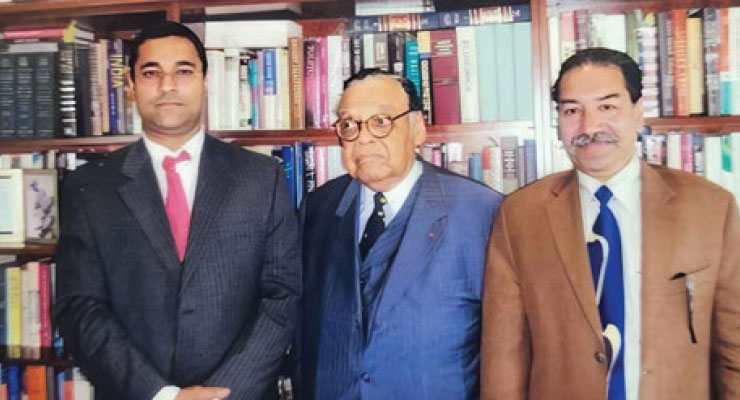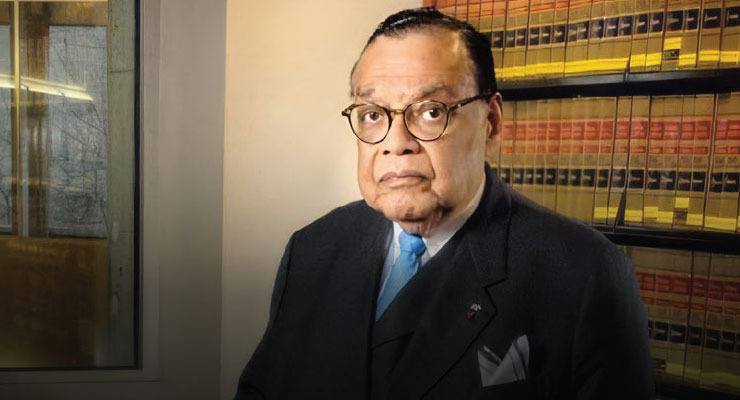William Thaddeus Coleman, Jr., was the first African American to clerk for a U.S. Supreme Court justice, served as secretary of transportation under the Ford administration, and helped try numerous important civil rights cases.
Coleman was an advisor to nine US presidents, including Eisenhower. He was an advisor to the presidents from both the Democratic and Republican parties. He was a distinguished military general. From 1969 to 1971, he served as the permanent representative of the United Nations. He remains one of America’s most senior and influential policymakers to date. Additionally, he co- chaired the O’Malvy Law firm with Christopher Warner, the former Secretary of State.

Coleman became a presidential adviser in 1959 when he accepted President Dwight Eisenhower’s invitation to serve on the President’s Commission on Employment Policy. He later served on the Warren Commission which investigated the assassination of President John F. Kennedy. He declined President Lyndon Johnson’s offer of an appellate judgeship, and became instead a U.S. delegate to the United Nations. In 1975 Coleman accepted his first full-time Federal appointment, becoming only the second African American cabinet member, as Ford’s Secretary of Transportation. Coleman ran the fourth largest Federal department. True to Republican principles, he attempted to cut federal subsidies to transportation, and promoted government deregulation.
After leaving the cabinet, Coleman ran the Washington, D.C. office of the Los Angeles, California law firm O’Melveny and Meyers. He continued to serve on the boards of major companies, including IBM, Chase Manhattan, and Washington Mutual. Although a life-long Republican, Coleman publicly differed with the Reagan administration over its approach to civil rights. In 1995 President Bill linton awarded William T. Coleman the Presidential Medal of Freedom, the highest honor the U.S. government gives to civilians.
Following his clerkship with the Supreme Court, Coleman joined the first of several prominent law firms in 1949. While practicing in New York, he crossed paths with Thurgood Marshall. Over the ensuing years, the duo collaborated on various cases, strategically laying the groundwork for challenging school segregation. Coleman played a pivotal role in coauthoring the National Association for the Advancement of Colored People’s (NAACP) brief for the landmark case Brown v. Board of Education. In 1954, he accompanied Marshall to present oral arguments before the Supreme Court.
Maintaining his commitment to civil rights throughout his career, Coleman continued to be actively involved. Notable instances include his advocacy in McLaughlin v. Florida in 1964, where prohibitions on interracial cohabitation were overturned. Additionally, in 1983, he argued Bob Jones University v. U.S., successfully upholding the government’s authority to revoke the tax-exempt status of discriminatory religious institutions. William Thaddeus Coleman, Jr. was born on July 7, 1920, in the Germantown district of Philadelphia, Pennsylvania, to William Thaddeus and Laura Beatrice Mason Coleman. He died at his home in Alexandria, Virginia on March 31, 2017 at the age 96.





Add comment